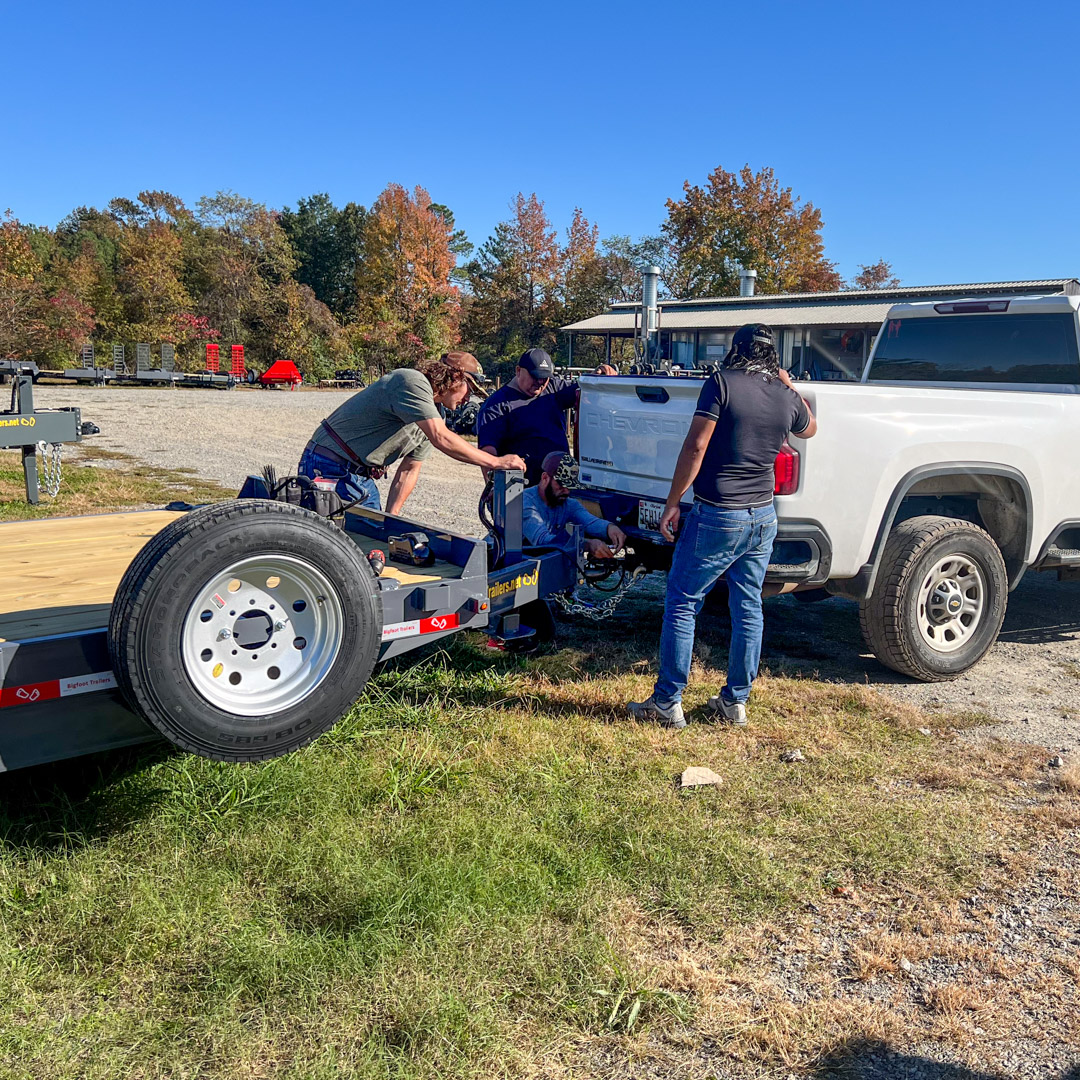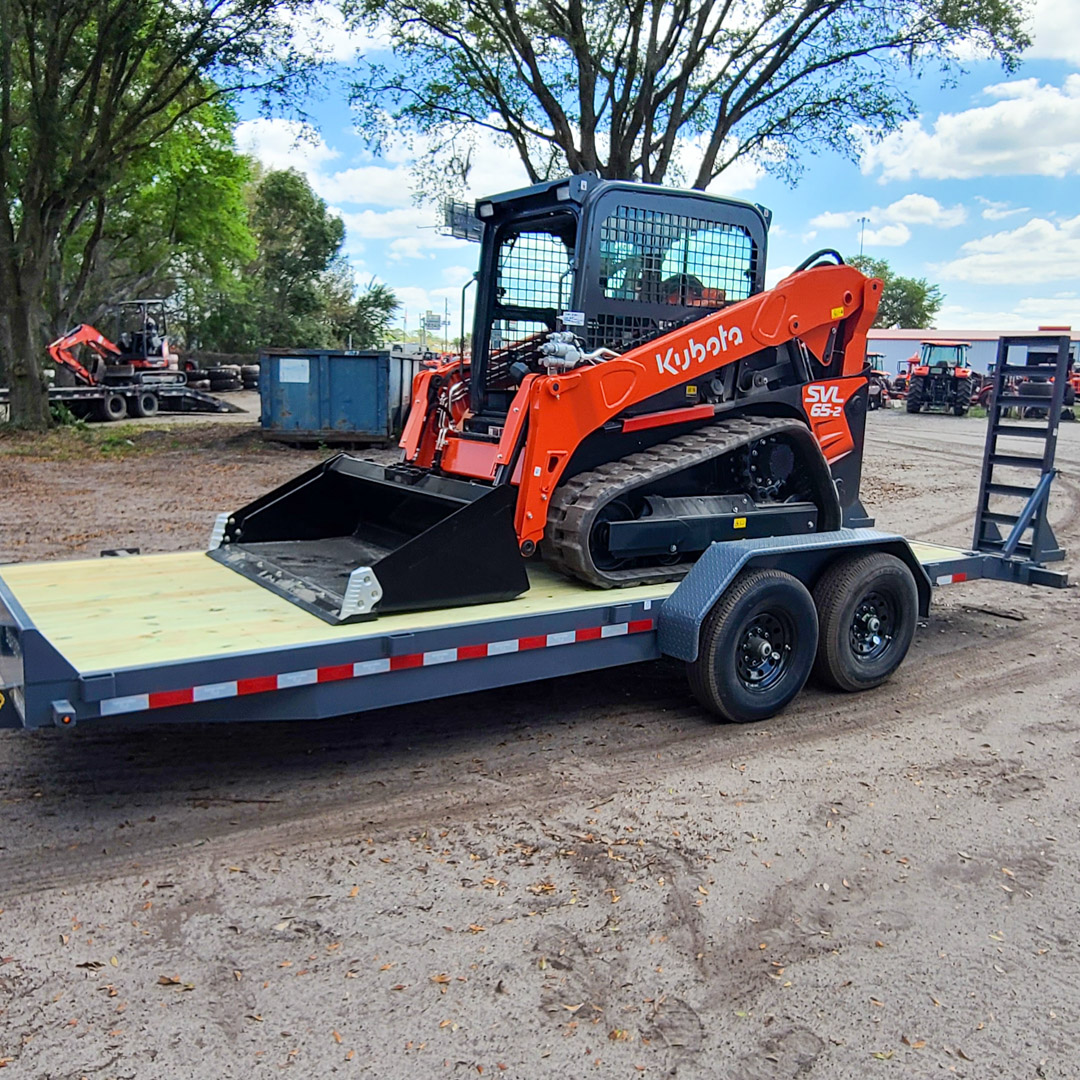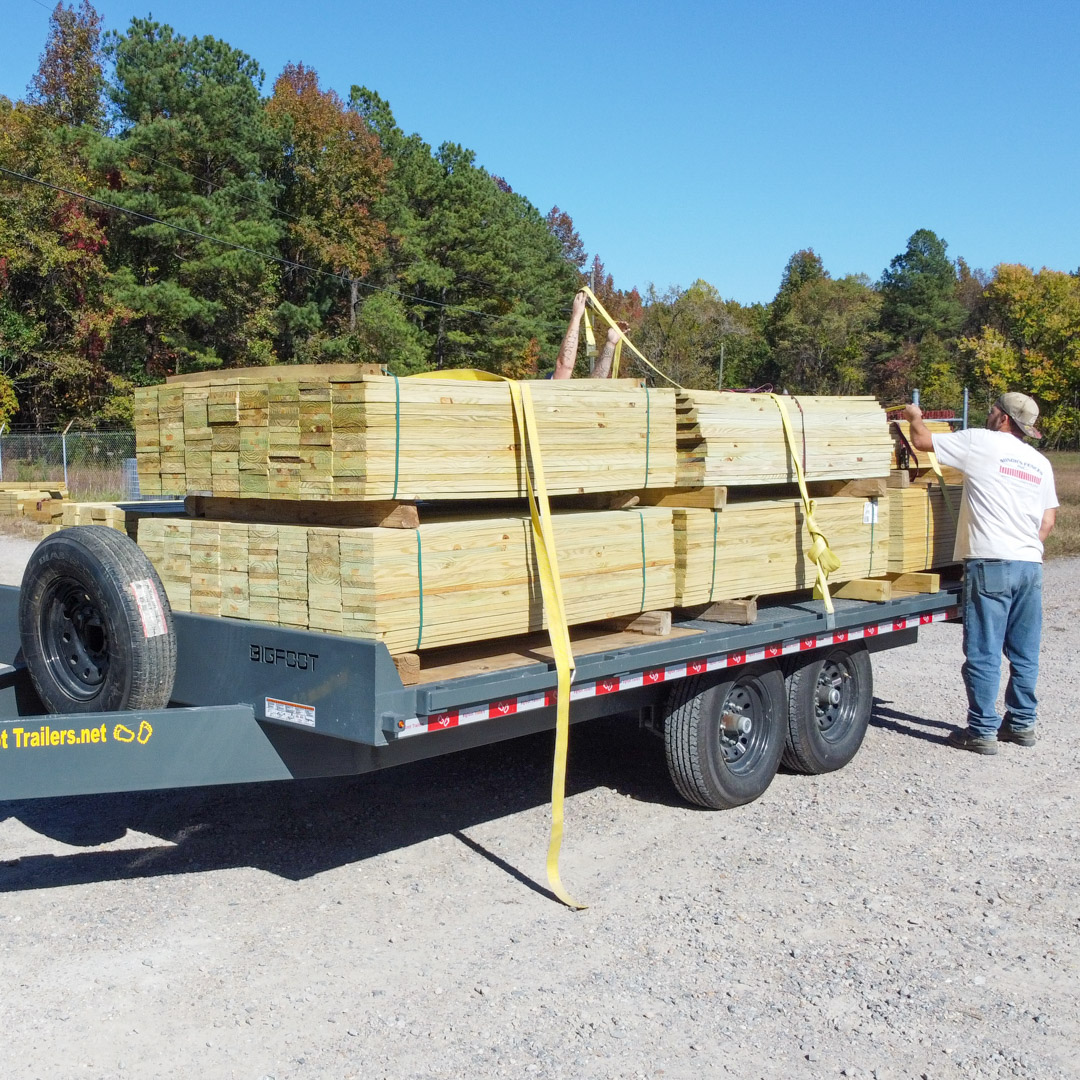Everything You Need to Know About Equipment Trailers
What you should know before purchasing Equipment Trailers
Equipment trailers are a great way to transport a variety of goods and materials. They are versatile, dependable, and widely used by a variety of industries. Whether you’re transporting construction or agricultural materials, or simply need a way to move large items from one place to another, an equipment trailer can be an invaluable asset. In this blog post, we’ll explore the different types of equipment trailers, and discuss the advantages and considerations to keep in mind when deciding which type is best for your needs.
 1. Benefits of Investing in an Equipment Trailer?
1. Benefits of Investing in an Equipment Trailer?
Equipment trailers can be an extremely useful addition to any business or individual’s toolkit. Investing in an equipment trailer can provide multiple benefits, such as increased efficiency, safety, cost savings, versatility, mobility, and convenience.
With increased efficiency, equipment trailers can save time and money by reducing the need for multiple trips for transporting equipment. The trailer also provides improved safety for your cargo, as it can protect it from elements, theft, and vandalism. Equipment trailers come in a range of sizes and price points, making it easier to find a trailer that fits both your budget and needs. The versatility this type of trailer offers also allows you to transport a wide range of cargo, from farming and construction equipment to recreational vehicles.
Increased mobility is another key benefit of an equipment trailer. It allows you to move your cargo from site to site, or from job to job, more easily and quickly. The trailer also eliminates the hassle of having to rent or borrow a truck or trailer for transporting your goods. All these features make investing in an equipment trailer an excellent choice for any business or individual.
2. What Size and Type of Equipment Trailer Should I Purchase?
Finding the right size trailer for your job can be a difficult decision. When purchasing this type of trailer, it is important to consider the size and weight of the equipment you are hauling. Smaller trailers can be pulled by a standard-size car or SUV. Larger trailers will require a full-size truck. Make sure that the size of the trailer should be appropriate for the job it’s intended to do. Heavier equipment means a heavy-duty, large trailer. The size of the trailer also tends to influence the price of the trailer.
To find the right trailer for you, consider the length, width and height. How heavy is the cargo you are hauling? How much of it do you plan on pulling? These are the questions you should ask yourself while selecting a trailer for purchase. Remember, trying to fit heavy or an abundance of cargo on a small trailer is a safety hazard to you and those on the road. Measure the cargo you plan to haul and make the right choice.
It is also important to compare different types of equipment trailers to find the one that best meets your needs. For example, if you plan on pulling a small tractor or car then our 14k equipment trailer would be a perfect choice. It’s a light-duty trailer capable of supporting 7,800 lb. If you plan on pulling something heavier, you might opt for one of our heavier-duty options.
When determining what trailer is right for you, your biggest concerns should be your cargo, weight and budget. Each trailer has different load capacities and lengths that can limit what you carry. Heavy-duty trailers will be heavier, but will also support more weight than a light-duty trailer. If you’re limited to a smaller vehicle, however, you might not meet the requirements to pull a heavy duty trailer. Heavy duty can also be pricier, as they tend to be larger trailers capable of hauling large cargo.
Equipment trailers can range from a few hundred dollars to several thousand dollars; depending on the size, features and construction materials used. For those on a tighter budget, used equipment trailers can be a great option, as they often cost much less than new trailers. However, be sure to inspect used trailers carefully before making a purchase to ensure they are in good condition and will be suitable for your needs. Many trailer dealers also offer financing options, which can make it easier to purchase a new or used trailer.
 3. What equipment can I transport with an Equipment Trailer?
3. What equipment can I transport with an Equipment Trailer?
Equipment trailers are an essential mode of transportation for a wide range of goods. From heavy machinery such as bulldozers and excavators to industrial and agricultural equipment like mowers and hay balers, these trailers are capable of hauling a variety of items. Recreational vehicles such as ATVs, motorcycles, and boats can also be hauled, as well as smaller items like pressure washers, generators, and lawn care equipment. Even building materials like lumber and roofing supplies can be easily transported with an equipment trailer. Other large items such as containers, tanks, and other items can also be hauled with an equipment trailer.
These trailers come in a variety of sizes and styles to suit different needs. Many feature ramps for easy loading and unloading, as well as secure tie-downs for more sensitive items. Some even feature a hydraulic lift for heavier goods. Whatever your needs, there’s an equipment trailer to fit your budget and hauling requirements.
Whether you’re hauling heavy machinery, recreational vehicles, or building materials, these trailers provide a safe and efficient way to move goods from one place to another.
4. What Safety Precautions Should I Take When Towing an Equipment Trailer?
When you’re hauling equipment with an equipment trailer, safety should be your top priority. Be mindful of the condition of your trailer before each use, and double-check that your trailer is properly attached to your vehicle before each use to ensure the safety of your cargo, your well-being and others on the road.
Make sure to check the condition of your trailer, new or used, before each use. Specifically, look for signs of rust, corrosion or other damage that can affect the safety of the trailer. Inspect your tires for flats and electrical systems for faulty wiring. Your brakes should be properly adjusted and keep your suspension system clean so it doesn’t weather and become damaged.
Keeping your trailer in good condition can help prevent accidents and save you money by maintaining the life of your trailer.
Along with the condition of your trailer, ensure that your trailer is securely attached to your vehicle with a hitch, safety chains, and a trailer ball. If your trailer has brakes, you should use a trailer brake controller. It’s also important to make sure the trailer tongue weight is appropriate for your vehicle. To do this, load the heaviest items closest to the hitch.
When towing a trailer, be aware of the speed limit and driving conditions. Make sure not to exceed the load capacity of your trailer. This can be dangerous. You may also want to consider using a hitch lock to prevent theft. Before each use, check the hitch, safety chains, and trailer ball for signs of wear and tear. It’s also important to make sure your trailer lights are functioning properly and that the trailer is visible from the rear of the vehicle.
By following these safety tips, you can help ensure that your equipment trailer is secure and that you and your equipment arrive safely to your destination.
5. Factors You Should Consider Before Purchasing an Equipment Trailer?
Equipment trailers are an invaluable tool for any business. When choosing an equipment trailer, it is important to consider several factors.
Firstly, it is essential to assess the total weight of the trailer and its payload. This will ensure that the trailer is equipped to handle the weight of the items being transported. Secondly, it is important to consider the type of terrain the trailer will be used on. Depending on the terrain, certain types of trailers may be better suited for the job.
Thirdly, it is important to investigate the types of trailers available and their features. There are numerous types of trailers available, and each has its unique features and capabilities. Fourthly, it is beneficial to compare the cost of purchasing a new trailer versus a used one. This will allow one to determine which option is most economical.
Lastly, it is important to look into the warranty and maintenance services offered by the manufacturer. This will ensure that the trailer is covered in the event of any issues or damage. Overall, taking the time to research and consider all of the factors discussed above will ensure that the right trailer is chosen for the job. With the right trailer, businesses will be able to make the most of their transportation needs.
 Bigfoot Equipment Trailers
Bigfoot Equipment Trailers
Bigfoot Equipment Trailers are the perfect solution for any job. With a wide range of heavy-duty trailers, Bigfoot Equipment Trailers are built with superior craftsmanship and are designed to withstand the rigors of any job site. With heavy-duty materials and designs, these trailers are built with durability in mind. They come in a variety of sizes, and styles and are affordable to meet any need.
Safety is also a priority for Bigfoot Equipment Trailers. All trailers come with a variety of features to ensure that your load is secure, such as a locking system, chains, and tie-down straps. Additionally, a variety of options are available to customize your trailer to fit your specific needs, such as ramps, tool boxes, and spare tire holders.
Bigfoot Equipment Trailers are backed by a 2-year warranty and are designed to provide you with years of reliable service. With all of their features, customization options, and superior craftsmanship, Bigfoot Equipment Trailers are the perfect choice for any job.




